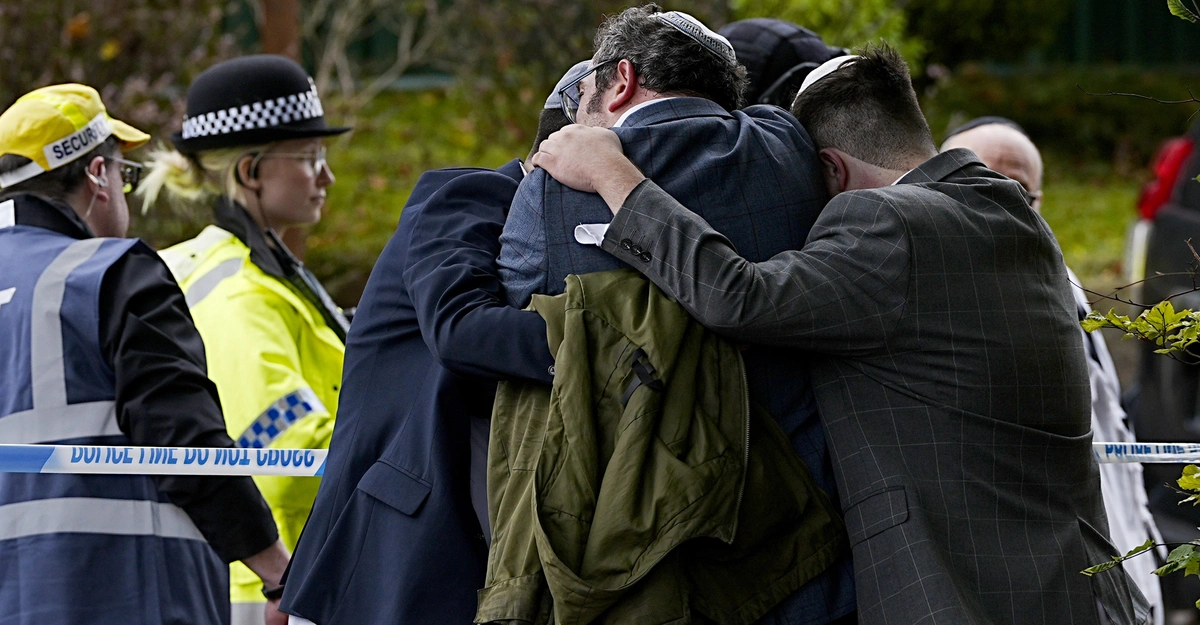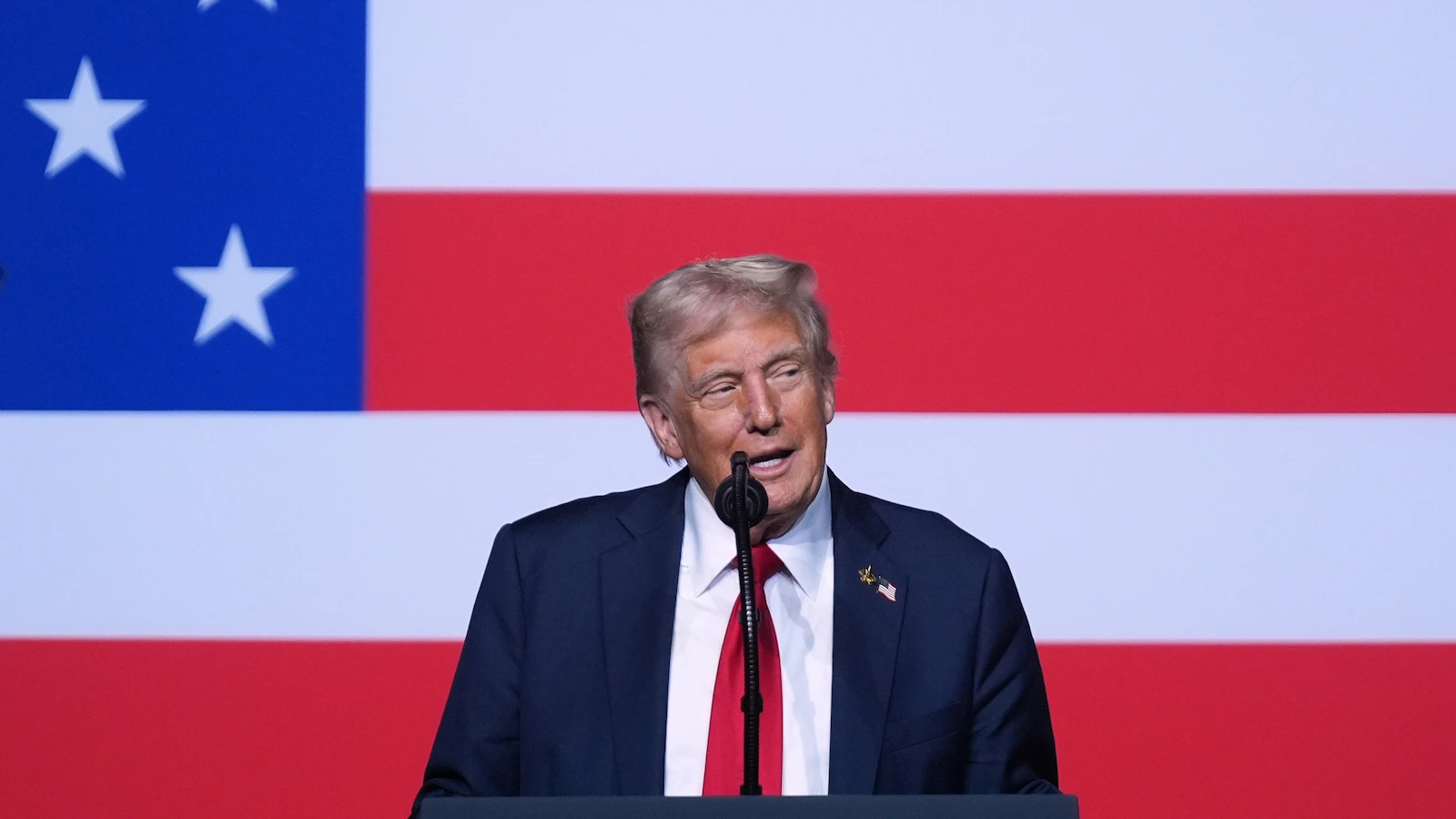
This morning, while Jews around the world settled in to observe Yom Kippur, two people were killed and three were wounded in a vehicle-ramming and stabbing attack at a synagogue in Manchester, England. Even before authorities made public the identity of the suspect, who was killed by police outside of the Heaton Park Hebrew Congregation, they had classified the incident as terrorism.
The two people killed were both Jewish, according to the police, and three people have been arrested in connection with the attack. U.K. Prime Minister Keir Starmer said that the assailant “attacked Jews because they are Jews” and that additional police are being deployed to other synagogues throughout the country. Manchester is home to about 30,000 Jews, the largest population in England outside of London. “The fact that this has taken place on Yom Kippur, the holiest day in the Jewish calendar, makes it all the more horrific,” he wrote in a social-media post.
Violent attacks against Jews are rising worldwide, and have intensified particularly over the past two years. Although many of the deadliest attacks have occurred elsewhere in Europe—as well as in other countries, including the United States—those who track anti-Semitism closely have long been worried about the United Kingdom. The Community Security Trust (CST), an organization that monitors anti-Semitism in the U.K. and coordinates security at Jewish institutions, recorded 1,521 anti-Semitic incidents in the first six months of 2025 alone, the second-most on record for the first half of any year. CST classified three of those incidents as “extreme violence,” meaning that they caused serious bodily harm or were otherwise life-threatening.
The highest number of anti-Semitic incidents in the first half of any year on record in the U.K. occurred in the aftermath of October 7, 2023, according to the CST: There were 2,019 in the first half of 2024, more than double the number that occurred during the same period in 2023. (The definition of what constitutes anti-Semitism can vary among organizations, but even with different tallies of anti-Semitic attacks and incidents, what the data reveal is universally troubling.) And as the war in Gaza has carried on, reports show a worrying trend around the world: Jews—regardless of their nationality or political affiliation—are more frequently being conflated with the state of Israel, putting them at greater risk of being targeted.
In one 2024 survey, which included responses from 8,000 Jews across 13 countries in the European Union, 96 percent of Jews reported encountering anti-Semitism in the previous year. In a 2015 story about anti-Semitism in European countries, Atlantic editor in chief Jeffrey Goldberg wrote that the Holocaust “served for a while as a sort of inoculation against the return of overt Jew-hatred—but the effects of the inoculation, it is becoming clear, are wearing off. What was once impermissible is again imaginable.” Far-right extremism is rising across the continent; in the U.K., white-supremacist groups aligned with Nazi ideology promote anti-Jewish conspiracy theories, according to the Institute for Strategic Dialogue.
In a speech today, Prime Minister Starmer said that Britain must “defeat” the threat of anti-Semitism. How that endeavor has played out in America, which has the highest population of Jews outside of Israel, is a cautionary tale: The Trump administration has harnessed growing fears around anti-Semitism to crack down on various perceived political foes, both individuals and entire institutions. As my colleague Jonathan Chait has observed, the administration’s approach to “combating” anti-Semitism has been “gleefully selective,” and in practice has amounted to “using anti-Semitism as a pretext to intimidate its opponents while simultaneously cultivating its own anti-Semitic faction.”
Anti-Semitism is often described as history’s oldest hatred. Today’s attack in Manchester is a reminder of how dangerous even the most ancient prejudices can be.
Related:
Here are three new stories from The Atlantic:
Today’s News
Dispatches
Explore all of our newsletters here.
Evening Read
When Adoption Promises Are Broken
By Nicole Chung
When I was in my 20s, I decided to search for more information about my birth family. This required that I pay hundreds of dollars to an intermediary, who petitioned a Washington State court to unseal my adoption records. She couldn’t share my birth parents’ names or contact information with me until she found them and gained their consent. Throughout the process, which dragged on for months, I thought about how things might have been different had I grown up in an open adoption, one in which I might have known more about my birth family and perhaps retained contact with them. I wouldn’t have had to wait decades, and I wouldn’t have had to shoulder the financial cost of a search, to understand where—and whom—I came from.
Back then, it was easy for me to entertain somewhat idealistic notions about open adoption, what I presumed were its benefits and joys. But the more I have learned and experienced in the years since, the more I have come to question some of those assumptions.
Read the full article.
More From The Atlantic
Culture Break
Explore. Live in a place where fall colors haven’t yet arrived, or won’t at all? See some cozy early-autumn photographs from across the Northern Hemisphere, gathered by Alan Taylor.
Read. Extraction, a new book from the political scientist Thea Riofrancos, argues that simply replacing fossil-fuel extraction with critical-mineral mining is no way out of the climate crisis, Scott W. Stern writes.
Play our daily crossword.
Shan Wang contributed to this newsletter.



